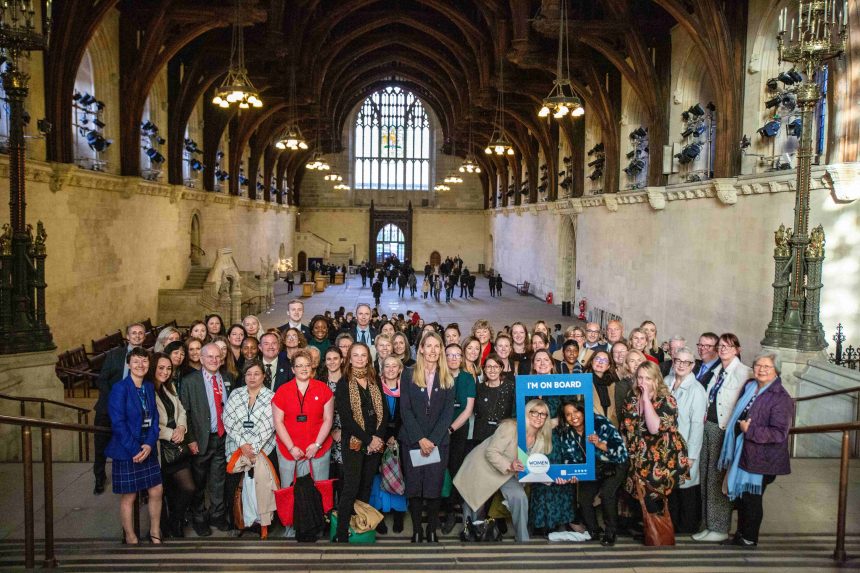UKCOA announces a new sub-group following the launch of Women in Bus and Coach
People of a certain age may remember that the Town and District Bus Company put up a notice saying “in view of the shortage of bus drivers, the company has decided to employ women drivers” in the 1971 film version of On the Buses.
The male crews are outraged and do everything they can to sabotage the women (who are doing a great job) by putting spiders in their cabs and laxatives in their tea. Ultimately, the men do succeed in getting rid of the women.
We have come a long way since then – but nowhere near far enough.
I attended the Parliamentary launch of Women in Bus and Coach on 20 November, which followed on from the national launch in Birmingham earlier in the month. This initiative aims to create a national network to encourage, represent, support, and retain women in the coach and bus profession.
Several issues were highlighted including the lack of suitable toilet facilities, inappropriate language in the workplace, unsuitable shift patterns and inflexible childcare options.
One woman spoke about her time working in engineering and being asked to change a light bulb on the bus. The men gathered round to see if she knew the right direction to turn the screwdriver!
Another woman, working as a safety manager at a major bus company, often has men challenge her instructions, refusing to comply until they are told the exact same thing by a male manager.
These scenes sound like they come straight out of a 1970s sitcom, but incidents like these are happening every day across the industry.
The launch was inevitably bus heavy, but did include an interesting speech from Candice Mason of Masons Minibus and Coach Hire. Candice pointed out that coach operators, which are mostly small companies, have an advantage as they can adapt much more easily and quickly than, say, the big five bus companies.
Candice feels that the inclusion of women in the industry is inevitable, but will get a much-needed push from this group, and in 30 years’ time, this conversation will be over.
While issues like inappropriate workplace banter can be achieved at grassroots level, there are also wider policy decisions that need to be in place to support the goals of this initiative: Poor rates of pay were mentioned.
We were given a call to action. It’s no good just talking a good talk in plush surroundings. It must be backed up with action out in the arena. It seemed to me that every person in the room was determined to play their part to ensure that coach and bus becomes an inclusive workplace not just for women, but also for people of all genders, races, and religions.
UKCOA is dedicating some of its resources towards supporting this initiative. And of course, we want to put the ‘coach’ in Women in Bus and Coach. We want to emphasise the importance of women and showcase their contribution to the sector.
I know from a number of conversations that our members truly appreciate their female staff, who play a key role in getting their coaches out on the road.
But we know there is more work to be done.
UKCOA is delighted to be forming a sub-group specifically to consider how to eliminate the barriers to entry and create an industry and environment that appeals to women – and what we can do to push that forward. The sub-group will be led by one of our members, Rose Williams from Williams Coaches, who will also take a seat on our Board.
This new group will dovetail nicely with our existing Driver Training Academy group set up last year to address the driver shortage in the coach industry.
I hope Candice is right: That this conversation will be over in 30 years, and that On the Buses will look even more ridiculous — and outdated — than it does now.




























